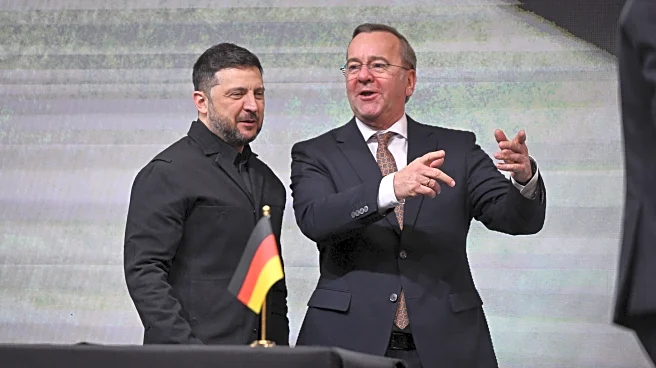What's Happening?
Shab and Shay Safarzadeh, Iranian-born entrepreneurs, have launched the Safar Global Foundation to champion girls' education and support women in under-resourced regions. The foundation focuses on areas such as the Middle East and Africa, including Iran and Nigeria,
where girls face significant barriers to education. The Safar Global Foundation partners with organizations like the Flaviana Matata Foundation and the GEANCO Foundation to provide tuition, healthcare, leadership training, and social-emotional support for girls. The foundation aims to make education more accessible and empower girls to succeed, leveraging partnerships with brands and foundations to amplify their impact.
Why It's Important?
The Safar Global Foundation's work is crucial in addressing the educational disparities faced by girls in under-resourced regions. By providing access to education and support, the foundation is helping to break down barriers and create opportunities for girls to thrive. This initiative not only empowers individual girls but also contributes to broader societal change, promoting gender equality and economic development. The foundation's focus on partnerships and collaboration highlights the importance of collective action in addressing global challenges.
What's Next?
The Safar Global Foundation plans to expand its reach and impact by enhancing partnerships and tackling educational challenges in new regions, such as the Middle East and Southeast Asia. The foundation aims to build schools and address issues like fast-fashion factories displacing girls from education. By continuing to collaborate with powerful institutions and organizations, the foundation seeks to redefine modern philanthropy and create lasting change.
Beyond the Headlines
The foundation's work underscores the ethical and cultural dimensions of education access, emphasizing the importance of diversity and inclusion in philanthropy. By focusing on girls' education, the Safar Global Foundation is contributing to a more equitable and just world, where education is seen as a right rather than a privilege. This approach not only benefits individual girls but also strengthens communities and promotes cultural heritage.

















